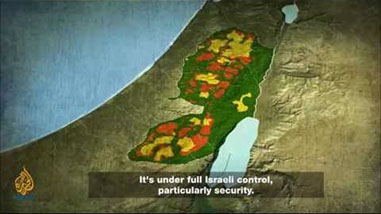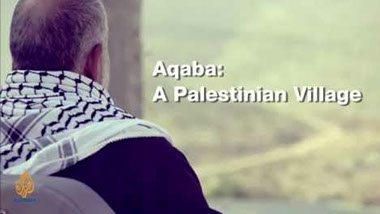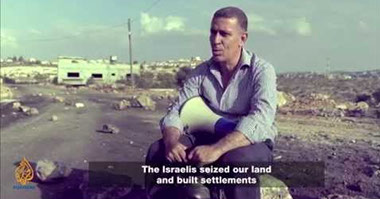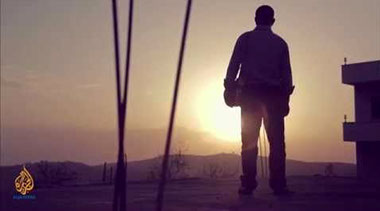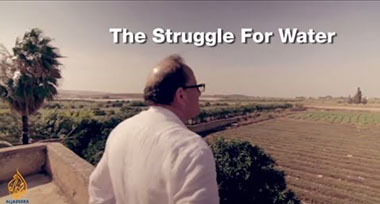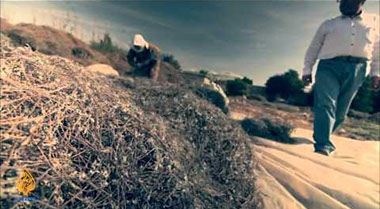AYED NABAA
Film Director
AREA C
In 1995, as part of the Oslo Accords, the occupied West Bank was divided into Areas A, B and C. While this was supposed to part of a progression towards peace, many Palestinians saw it as a raw deal that undermined their claim to a future state.
As part of the Oslo Accords, the occupied West Bank was divided into three. Area A constituted 3 percent of the occupied West Bank, increased to 18 percent by 1999. Here the Palestinian Authority (PA) controls most civilian affairs and internal security. In Area B, about 21 percent of the occupied West Bank, the PA is in charge of education, health and the economy. In both areas, the Israelis hold full control of external security, meaning they retain the right to enter at any time. Sometimes they do so to arrest somebody, while at other times, the goal is to conduct an extrajudicial execution.
Area C makes up 60 percent of the occupied West Bank. Under the Oslo Accords, control of this area was supposed to be gradually handed over to the PA. Instead, Israel retains total control until today.
For many Palestinians, it is a mistake to portray the division of the occupied West Bank into Area A, B and C as a positive step towards peace. In reality, it has been used by Israel to exert more control over Palestinians lives. When it comes to launching raids on Palestinian homes and land, Israel makes no distinction between Area A, B and C. The occupation is enforced everywhere.
Israeli settlements, military training zones and bypass roads are all contained in Area C. Palestinians living there face increasingly dire conditions. Area C villages like El-Maleh, Kafr Qaddum and Aqaba are suffocating under Israeli occupation and control.
Today, some 150,000 Palestinians live in Area C, where they face severe restrictions on planning, building and access to natural resources. It is estimated that more than 300,000 Jewish-Israeli settlers also live in Area C, in clear violation of international law.
Illegal Israeli settlements are still expanding at a rapid pace on almost every hilltop throughout the occupied West Bank. In Area C, the problem is particularly pronounced.
Palestinians living in Area C are trying to resist the demolition of their homes and the confiscation of their lands. They are also forced to fight for their basic needs, like access to clean water. According to the Palestinian human rights group Al-Haq, some 300,000 Palestinians in more than 100 communities in the occupied West Bank lack proper access to clean water.
In 1967, the year Israel occupied the West Bank, East Jerusalem and the Gaza Strip, water resources were brought exclusively under Israeli control. Al-Haq says that since then, Palestinians have been denied access to their rightful share of water and prevented from developing their own water infrastructure.
According to the United Nations Office for the Coordination of Humanitarian Affairs, the practice of demolishing Palestinian wells and water reserves in the West Bank has intensified in recent years. Permits to build any form of water infrastructure are nearly impossible to obtain – at least for Palestinians.
This is why, as Oxfam International’s Alun McDonald has put it: “You have Israeli settlements, which continue to expand where new buildings are frequently announced and which have access to 80 percent of water resources. So you have a very discriminatory system, where some people are allowed to build and some people are not.”
Since the Oslo Accords, negotiations between the Palestinians and Israelis have stalled. The dispute over Area C remains as intractable as ever. The danger for Palestinians of losing access to their land’s natural resources is real. So too is the Israeli appropriation of Palestinian heritage sites, the destruction of Palestinian homes, and the continued control of Area C by an occupying force. Israel’s appalling conduct continues, unchecked by the international community.
WATCH THE FILM
SETTLEMENT
PALESTINIAN AUTHORITY
BORDERS
BYPASS ROAD
CREDITS
DIRECTED BY
AYED NABAA
DIRECTOR OF PHOTOGRAPHY
FREDERICO BEJA
EDITOR
RASHEED FAIDI
MUSIC BY
NAJATI AL-SULOH
PRODUCTION HOUSE
VISION, JORDAN
COMMISSIONING SENIOR PRODUCER
RAWAN DAMEN
PRODUCTION YEAR
2014
REVERSIONED BY AL JAZEERA WORLD TO ENGLISH – 2014
COPYRIGHT © ALL RIGHTS RESERVED FOR AL JAZEERA
RETURN TO TOP
